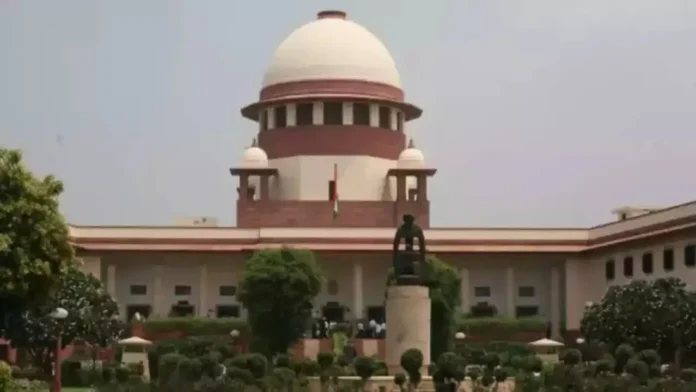SC rules enhanced POCSO punishment can’t apply retrospectively. Life term till natural life reduced to regular life imprisonment. | The Legal Observer
Subheading (Intro Sentence):
In a significant ruling on sentencing under the POCSO Act, the Supreme Court held that applying enhanced punishment retrospectively violates Article 20(1) of the Constitution.
SC Reduces Life Term, Cites Article 20(1) Protection Against Retrospective Penal Law
On July 25, 2025, the Supreme Court of India modified the sentence of a convict under the Protection of Children from Sexual Offences (POCSO) Act, observing that the retrospective application of enhanced punishment violates the constitutional protection under Article 20(1).
The convict was earlier sentenced to life imprisonment till the remainder of his natural life for the rape of a five-year-old child, but the top court ruled that this sentence could not stand, as the provision prescribing such a penalty came into effect after the offence was committed.
While the conviction was upheld, the sentence was modified to life imprisonment under the existing legal provisions at the time of the offence — reaffirming the constitutional safeguard that no person shall be subjected to a penalty greater than that which might have been inflicted under the law in force at the time of the offence.
Legal Context: Article 20(1) and the POCSO Amendment
Article 20(1) of the Constitution states:
“No person shall be convicted of any offence except for violation of a law in force at the time of the commission of the act charged as an offence, nor be subjected to a penalty greater than that which might have been inflicted under the law in force at the time of the commission of the offence.”
The Protection of Children from Sexual Offences (Amendment) Act, 2019, introduced stricter penalties, including life imprisonment till natural life for certain aggravated offences. However, the offence in the present case occurred prior to the amendment, and the trial court’s decision to apply the amended punishment retrospectively came under sharp judicial scrutiny.
The Case and Key Judicial Reasoning
The trial court had sentenced the appellant to life imprisonment till the end of his natural life, despite the fact that the 2019 amendment, which introduced that provision, was not in force at the time the offence was committed.
In its ruling, the Supreme Court underscored the non-retroactive nature of criminal law, reiterating that imposing enhanced punishment post facto violates a core fundamental right. The Bench observed:
“Though the act was heinous and repugnant, punishment must always be tethered to the law as it existed on the date of the offence. Deviating from this principle shakes the foundation of constitutional protection.”
Therefore, while affirming the conviction, the Court held that the sentence must conform to the law applicable at the time, and reduced it to life imprisonment (which, unless otherwise specified, typically means imprisonment for the remainder of life, subject to remission).
Victim Protection vs. Constitutional Protections
The case throws light on a delicate judicial balance — between the need for stringent punishment for child sexual offences and the imperative of adhering to constitutional safeguards.
Legal experts point out that the Supreme Court’s ruling reinforces the doctrine that even the most egregious crimes cannot justify the erosion of personal liberties enshrined in the Constitution. As heinous as the act may be, it cannot serve as a justification to overlook fundamental due process guarantees.
This judgment may also guide lower courts and prosecutors on sentencing principles when dealing with cases that straddle legislative changes.
Broader Implications for POCSO and Criminal Jurisprudence
The Supreme Court’s nuanced application of Article 20(1) in this POCSO matter offers vital judicial clarity on sentencing limits when laws evolve. As Parliament continues to stiffen penalties for sexual crimes, it becomes crucial that courts draw a constitutional boundary on the application of such provisions.
Advocates argue that this decision strengthens the idea that rule of law must prevail even in the face of public outcry or moral outrage, which often accompanies cases involving child abuse.
At the same time, the reaffirmation of the conviction also serves the ends of justice by ensuring the offender remains behind bars — albeit under the sentence permissible under the law then in force.
Final Outcome
The modified sentence of life imprisonment (instead of life till natural life) will now be served by the convict. The Supreme Court directed that the judgment be circulated to all trial courts and High Courts, emphasizing the importance of constitutional compliance in sentencing, particularly in cases where laws have been amended after the date of the offence.
For more on the POCSO Act and constitutional rulings, read The Legal Observer’s National News and in-depth coverage under Legal Insight. Also, watch our explainer video on The Legal Observer’s YouTube Channel.
Internal Links Used:
- https://thelegalobserver.com/category/news/national/
- https://thelegalobserver.com/category/views/insight/
External Link Used:




